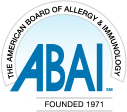About ABAI Maintenance of Certification (MOC)
- What is Maintenance of Certification (and what happened to recertification)?
Maintenance of Certification (MOC) is a voluntary, continuous learning process that provides board-certified physicians a mechanism to demonstrate their commitment to high quality care within their specialty. It is a voluntary process for time-unlimited certificate holders.
The MOC process assesses physicians’ skills and knowledge in a changing medical specialty where active, on-going learning is key to practicing state-of-the-art specialty medical care. MOC was developed in an attempt to assure patients and other outside entities that they are receiving the most up-to-date and quality care from physicians who use best practices and evidence-based standards for care.
The ABMS has developed MOC to provide the general public with a means to assess a physician’s credentials as a provider of quality healthcare. All 24 specialty member boards have developed their own MOC processes which evaluate the six core competencies for quality patient care as outlined by the ACGME.
- How do I get started in Maintenance of Certification?
The first step is to log on to the ABAI Web Portal (http://portal.abai.org). If you have never visited this website before you will need to "Verify Your Account". The portal presents your personalized ABAI MOC information so you can track all of the requirements in one location with specific and defined timelines.
ABAI will start reporting MOC status of its Diplomates to ABMS as of January 2011. In order to be reported as "Meeting MOC Requirements", all ABAI Diplomates will need to complete their respective MOC requirements by December 31, 2010. For most Diplomates this will be the annual MOC fee of $150, copies of all medical licenses displaying the expiration date, and 25 CME credits in allergy/immunology-related activities.
- What are the requirements for the ABAI Maintenance of Certification process?
ABAI MOC has requirements which are grouped into four categories as outlined by ABMS:
Part I - Professional Standing
Medical specialists must hold a valid, unrestricted medical license in at least one state or jurisdiction in the United States, its territories or Canada.
REQUIREMENTS- Submit a copy of all unrestricted medical licenses
- Remit an annual MOC fee ($150)
- Update demographic and contact information
Part II - Lifelong Learning and Self-Assessment
Physicians participate in educational and self-assessment programs that meet specialty-specific standards that are set by their member board.
-
ABAI Requirements
- Submit proof of 25 CME credits annually
- Complete 1 Patient Safety Module every ten years
- Complete 1 Communication Practice Improvement Module every ten years
- Complete 1 Recent Advances Module every five years
Part III - Cognitive Expertise
Physicians demonstrate, through standardized examination, that they have the fundamental, practice-related and practice environment-related knowledge to provide quality care in their specialty.
-
ABAI Requirements
- Participation in CAP.
Part IV - Practice Performance Assessment
Medical specialists are evaluated in their clinical practice according to specialty-specific standards for patient care. They are asked to demonstrate that they can assess the quality of care they provide compared to peers and national benchmarks and then apply the best evidence or consensus recommendations to improve that care using follow-up assessments.
-
ABAI Requirements
- Complete 1 practice assessment/quality improvement module every 5 years
- What is the evidence that participating in MOC improves quality of care?
Unfortunately, although studies are underway, there is not yet overwhelming data confirming whether MOC improves the quality of medicine delivered (11 studies in MOC and quality of care). However, ABMS is taking the lead on developing a physician-driven process that will be credible to the many outside stakeholders interested in clinical care most importantly patients and their families. Obviously physicians are being held more accountable for practicing high quality medicine and ABMS believes that physicians and the medical profession, not regulators or payers, should develop the process by which physician performance is assessed and reported.
The Directors at ABAI understand that MOC may be burdensome for a busy academician or practitioner and we are trying our best to develop the most meaningful process possible. In addition the ABMS and the member boards are working diligently to decrease redundancy in requirements by working with other entities interested in measures of physician performance to assure that MOC measures are accepted as fulfilling requirements.
